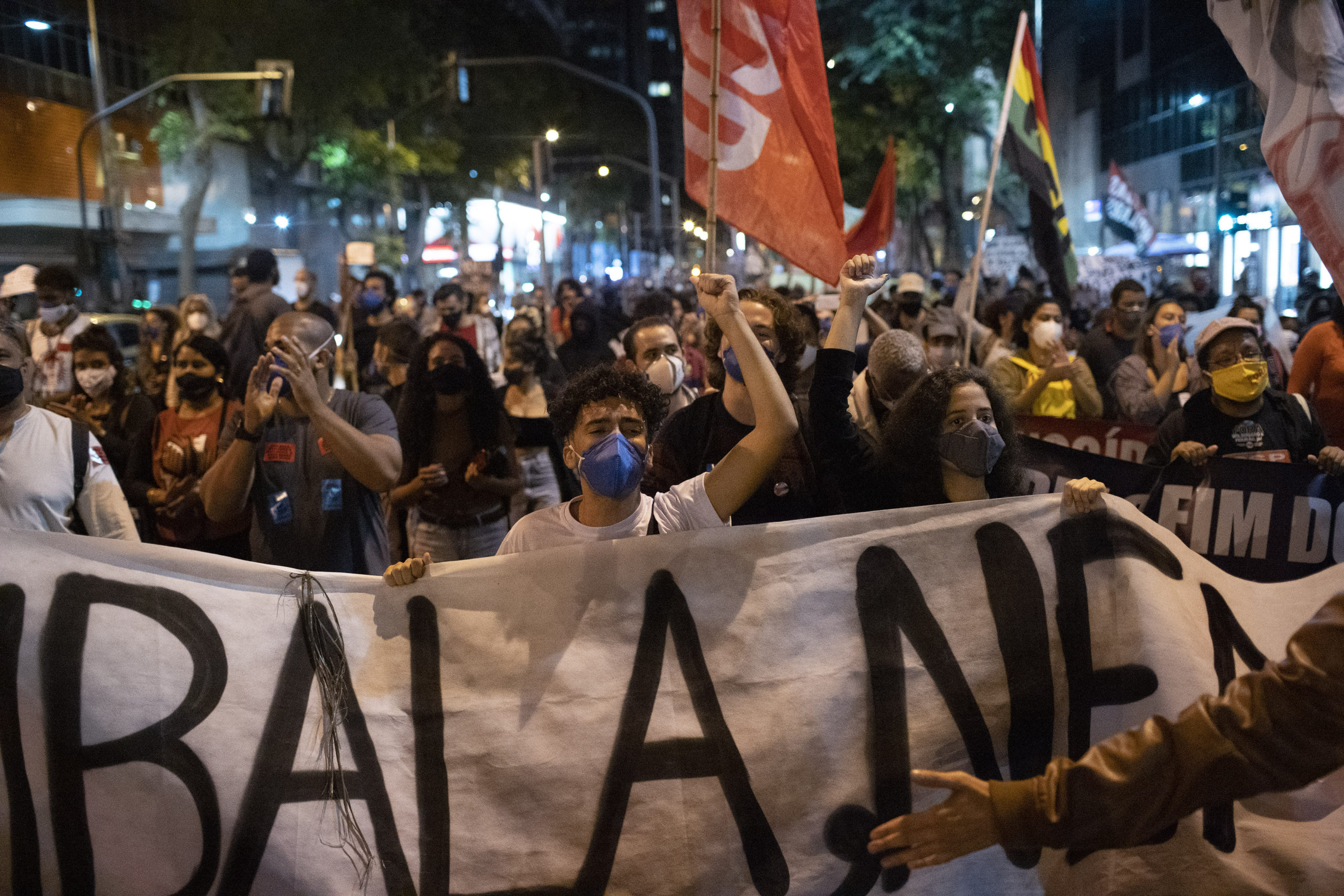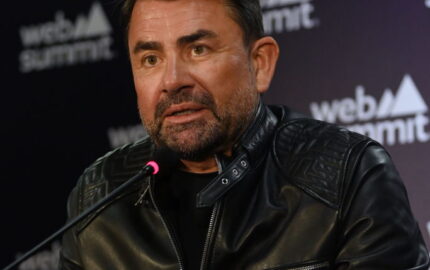On Sept. 7, Brazil commemorated the bicentennial anniversary of its independence. But a new media project aims to highlight how that independence — and how Brazil has evolved up to the present day — was built on slavery.
Inspired by Nikole Hannah-Jones’ and The New York Times’ 1619 Project, projeto Querino offers an Afro-centric history of a country that imported nearly half of all enslaved people taken from Africa and would be the last country in the Western hemisphere to abolish slavery. Through an eight-episode podcast produced by Rádio Novelo and an essay series published by the magazine piauí, projeto Querino demonstrates how enslaved people propelled Brazil’s independence and built its wealth. The project also spotlights the contributions of Afro-Brazilians in the modern day, ranging from music to education to health care.
Nieman Reports spoke to Tiago Rogero, projeto Querino’s creator, about the project’s inception, ways journalists can incorporate historical research into their work, and how the media can tell the stories of Afro-Brazilians. This interview, which was conducted in Portuguese and translated, was edited and condensed for clarity.
How did projeto Querino come about?
In 2019, I went to the U.S. to do a fellowship with the International Center for Journalists. I spent four weeks in D.C. and got to visit the National Museum of African American History and Culture. I was fascinated by the museum. I went to that museum four times — it’s the only museum that I’ve ever visited that much — and it was during one of those visits that I listened to the 1619 Project. When I came back to Brazil, I got to know the work of an institute here called Instituto Ibirapitanga, which funds initiatives to promote racial equality. We talked about 1619, and we came up with the idea to do a Brazilian 1619 Project. At the start of 2020, I began working on this.
There were six months just of preparation to present projeto Querino to Instituto Ibirapitanga and obtain the grant. At that time, I began talking to Rádio Novelo, the main podcast producer in Brazil. It was a coincidence; at the time I was talking to Novelo about “Vidas Negras” [“Black Lives”], a podcast I made with Novelo for Spotify. And that’s how Novelo entered projeto Querino. In June of 2020, [projeto Querino] obtained a grant from Instituto Ibirapitanga. Then we started working.
It was a year of research: historical research, bibliographic research, and also researching audio, researching images. After this period of research, we [began] producing the podcast, doing the interviews, but not departing from the research. What stories were we going to tell about this macro-history of Brazil? How were we going to tell the story of public health in Brazil, as is the case with episode seven? Or in the case of Brazil’s independence, as in the first episode? It was two years of work with more than 40 people involved, a team that is majority Afro-Brazilian.
How, if at all, do you see projeto Querino in conversation with 1619?
We were inspired by 1619, but the differences [between the projects] are posed from the very beginning because the number of slaves, for example, who came to Brazil is 10 times larger than the number that went to the United States. And it’s not an accident that the percentage of Afro-descendants in the Brazilian population is more than half the population, while in the United States it’s less than 15 or 20 percent. Here, we’re the majority of the population. Though politically and economically we’re the minority, quantifiably we are the majority. In terms of power, we are the country’s minority.
Something that really got to me, mainly in the first episode of 1619, was how the Black struggle in the U.S. was what provoked some of the biggest advancements in American democracy in terms of human rights, civil rights, and such. It was a major focus in projeto Querino for us to show some of Brazil’s best characteristics that are an example to other countries. For example, our health care system. It’s not perfect, but especially compared to the United States, it’s a system that is able to reach poor people. [That system] is a result of the struggle of the Black movement and Black people. So, this was a big inspiration to have this positive look at our history — a proactive, optimistic look at this history.
One thing that struck me about the podcast was how much agency it assigned Afro-Brazilians — episode three, about music, comes to mind. What considerations did you take in choosing to tell this story about Brazil the way you did?
Agency, for us, is everything. Agency is everything because to tell this story about Black existence in Brazil without agency, without voice, without resistance — that already exists. The conventional historiography that we learn in school already exists in the mainstream media. Our product had to be different, had to contextualize [this history] right. We had to show a version of the story that is not commonly told. We did not want to make a kind of violence porn, or trauma porn. So much so that, for example, we deal with slavery, but we don’t describe the torture of slaves at all in the entire project. Why? Because that’s already part of people’s imaginations. We don’t need to promote that again. This is a second violence. That’s why we’re a lot more interested in the ways that Black people found to, despite that, promote their own education, promote their health and self-care, form families. Those were examples that we included to serve as an inspiration today. In the past, there are sad and dark explanations for the inequalities we have in Brazil today. But we also can find in the past examples of how people can fight today for a better world with more rights and more democracy.
This project is a blend between journalism and history. How do you see the two informing each other?
I’m a journalist, not a historian, but I see a perfect marriage here. [History and journalism] converse well because they’re professions that converge at a lot of points. The rigor of investigation, the rigor of the research, they guide both a good journalist and a good historian. It’s cool to understand — and I think that we did this well in projeto Querino — the virtues of both to use the best that each have. Historiographical research, and contextualizing historiographical research, [helps] not put today’s gaze on a [historical] moment. For example, a historian that we heard in the eighth episode talked about the fact that one of the main abolitionists in Brazil, André Rebouças, was a Black man who owned slaves. Look at this big contradiction, a Black man with slaves. He defended the end of slavery and owned slaves. In fact, when he entered the abolitionist movement, he stopped owning slaves. But it’s interesting to think about. With today’s gaze, we might cancel this person. But when we understand the historiography of this moment, we can put these things in perspective.
And how does journalism help? I think that systemizing this history from a point of view is narratively attractive. I think that’s one of the main contributions that the journalism part of projeto Querino gave to the historical part. I think [history and journalism] are complementary works, as long as one learns from the virtues of the other. I think we did that well.
The very end of the podcast series ends with you saying: “As long as there is racism, there will be no democracy. And it’s past time for Brazil to actually be a democracy.” This project did not only come out during the bicentennial of Brazil’s independence — it came out right before an election where many see democracy at risk. What should we take from projeto Querino into this election?
When we look at the two candidates [Luiz Inácio Lula da Silva and Jair Bolsonaro], there are two projects: a democratic project and an anti-democratic project. It’s important in this moment to understand that democracy is, in fact, at risk.
After this moment, if the democratic project wins, I think that one inspiration that projeto Querino leaves for the audience is to remember that, despite all of the advancements that happened in Lula’s government — during Lula’s first two administrations, there were lots of social advancements, and from the social point of view and economic point of view we were much better off than we are today — Brazil is not a country free of racism. We still haven’t solved the issue of racism, the issue of inequality. Brazilian democracy will only reach its peak, will only be complete, when people have equal opportunities to exercise their rights as a citizen that we didn’t have even before Bolsonaro.
Even with Lula’s advancements, we still weren’t at that point. Going back to [the Lula administration] won’t resolve that. We need to think about this moment as an opportunity to create a new Brazil, to create a Brazil where people are not impeded from exercising their full potential as citizens, as humans, as one should. A democracy should be where there isn’t a differentiation between people. I believe that this is the main message that we wanted to relay in this finale.



